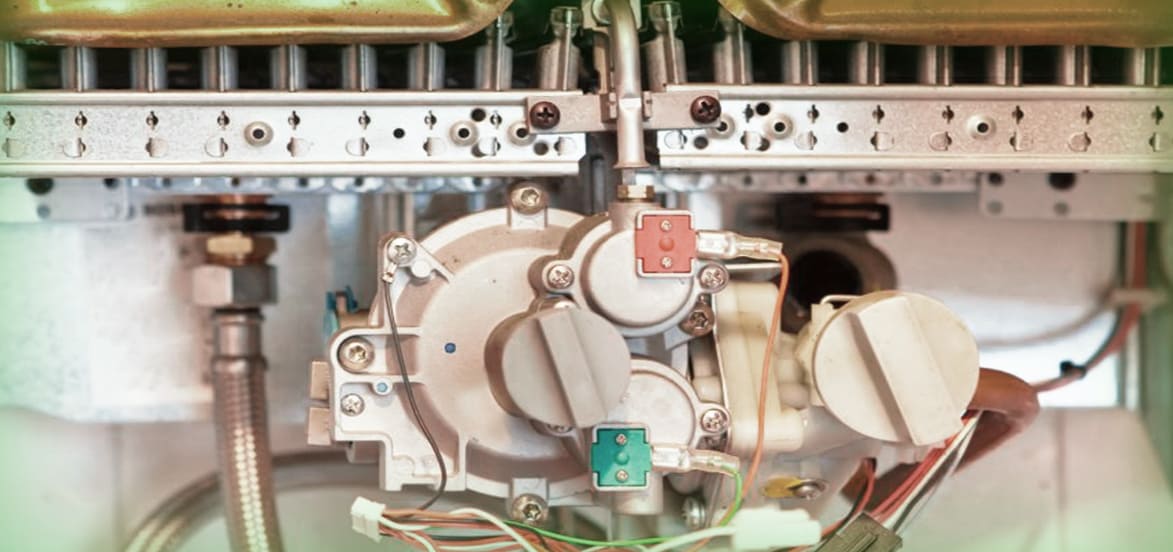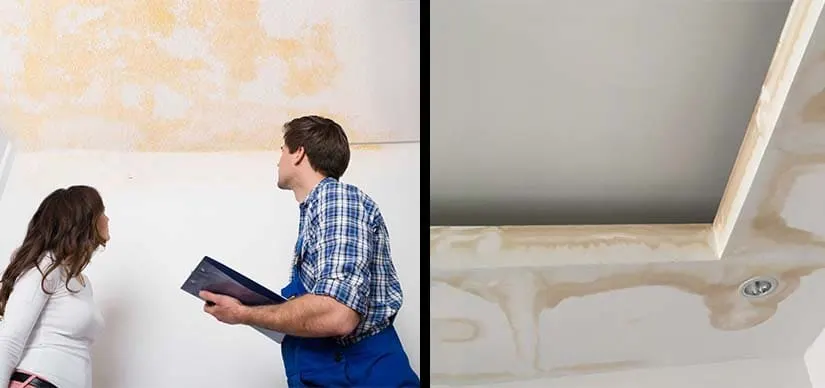Is It Better To Leave The Water Heater On All The Time?
Views : 879

A water heater is an essential item in each household in any location that endures significant or moderate winter chill. Even if you don’t have a problem with cold water in the winter, an instant water heater may be a useful solution to receive fast, hot water for effective cleaning of utensils and other uses.
Your water heater could be compared to a large kettle. Consider leaving your kitchen kettle on an entire day just to ensure that you always have hot water for your tea and coffee. It seems like a lot higher power use, doesn’t it?
The Two Sides Of The Coin:
The major reason for turning off a water heater is that the element in the water heater is not heating the water when it is off. So, it is not consuming power. The appliance might only need more power once the water heater chamber has been refilled with cold water. When the water heater’s switch is off, the water inside the water heater cools gradually. Hence, you require more energy to heat the total volume of water whenever needed.
On the other hand, if you leave a water heater on, the water remains at high temperatures all of the time, requiring little or no heating from the element.
There are two sides to the water heater narrative. But people think that a tremendous amount of power is required to put a water heater back in use. It takes a longer period of time to maintain a consistent temperature in your water heater once it is turned off for a while. So, what should be done?
Is It Right To Leave The Water Heater On All The Time?
Water heaters, in fact, account for up to 40% of a household’s electrical cost, as per many reports. Reducing the energy usage of your water heaters is beneficial not just to your monthly bills but also to the environment.
A comprehensive examination is, however, necessary to determine if leaving a water heater on or shutting it off on a regular basis is more energy efficient.
Some water heaters are intended to heat up quickly, which consumes a lot more energy, but they can maintain high temperatures without using much energy. Modern water heaters are already designed to use less energy than earlier types.
Our experts offering tankless water heater repair in Los Angeles would say everything depends on the factors related to your water heating needs and usage.
First, let us understand some facts about energy consumption related to water heaters.
Four Factors Influencing Energy Consumption
Factors influencing your water heater’s energy use include:
- Your water heater’s type & condition
- How much hot water do you consume?
- How frequently do you use it?
- Insulation
Turning off your water heater, according to most professionals, including EZ Plumbing USA, would not save much power.
Only 10°C of heat is lost once your water heater is turned off for 24 hours. This is referred to as a ‘standing loss,’ and it is a quality standard established by the SABS.
Using slightly cooler water instead of warming may save a little amount of power, but when the water heater is switched back on, the electricity required to reheat the now-lower temperature will negate any savings.
At the same time, leaving your water heater running all the time will not result in any further energy savings.
You definitely will save on power bills by turning off your water heater if you don’t intend on using it for an extended length of time, such as when you go on vacation.
But a lot of things also depend on the type, capacity, brand, and manufacturing details of your water heater. It is wiser to consult with an expert professional offering water heater services in Los Angeles before you engage in energy-saving activities based on your own notions.
How Can I Save Energy and Water Heater’s Performance?
1) Make Use Of Insulation
Insulating your water heater with a thermal blanket, as well as insulating the pipes, will keep heat from escaping and force you to use more energy to compensate.
Using sufficient insulation to keep your water heater operating can lower the amount of energy required to sustain high temperatures. Effective insulation saves roughly 20% of power when reheating a water heater that has been turned off for 24 hours, according to tests.
2) Appropriate Thermostat Settings
Set the thermostat on your water heater to 60°C to save energy. Higher temperatures are inefficient and waste energy. Install your water heater as near to the locations that require hot water as feasible. This will minimize the cooling of the water in the pipes.
3) Use Of Cold Water
Hot water is not always essential while washing your hands, clothes, or dishes. Reduce the temperature on your washing machine and dishwasher.
4) Install A Showerhead
It saves water and electricity. This can result in up to a 24% reduction in electricity and water use.
5) Solar Energy
Although it is more expensive to install, a solar water heater saves a lot of energy and is better for the environment. You can conserve power by controlling your hot water consumption and maintaining your water heater.
These facts bring us back to the myths and facts about water heater maintenance. As experts in storage and tankless water heater repair in Los Angeles, we have quite some interesting information to share. We are here to bust some of the myths!
5 Amazing Myths Related To Water Heater
Water heaters that are old or broken will use electricity. Whether you switch off your water heater on a regular basis or leave it flowing, only appropriate management will affect your savings.
Homeowners across the globe have been encouraged to switch off their water heater, but does it really make a difference?
1) Switching The Hot Water Heater On And Off Damages The Thermostat.
Certainly not. During the usual working cycle, the thermostat switches on and off.
The hot water heater breaker switch will sustain the only damage since it is designed to trip only when there is a problem with the water heater. It is not intended to be turned on and off repeatedly.
2) Switching On And Off A Water Heater Will Cause It To Break.
No, absolutely not. The water heater is built to resist the warmth and pressure generated as the water warms up and turns on and off during regular operation.
3) The Water Heater Does Not Need To Be Turned Off If You Use A Blanket.
While the blanket helps to reduce heat loss, keeping the water hotter for longer, resulting in less power being consumed – when the water heater does kick on, the average savings gained with a water heater blanket alone is only approximately 8%.
Utilizing a timer to manage the water heater’s working hours will save between 15% and 18% on top of the blanket. Controlling the water heater’s usage saves more energy than merely using the blanket.
In short, utilizing a water heater timer alone is almost twice as effective as using a water heater blanket alone in lowering energy use.
4) Water Heater Blankets Have The Potential To Overheat, Explode, Or Catch Fire.
The water heater blankets, constructed of recycled PET (2L Coke bottles), do not burn, overheat, or explode. If a fire breaks out in the ceiling, the blanket would simply melt in the heat.
5) Turning Off The Water Heater Has No Significant Influence On Total Power Use.
The water heater accounts for between 40 percent to 60 percent of total power utilized in a month in an ordinary household.
When thousands of water heaters are all running at the same time during the day and night, the supply grid is put under great strain.
This is the major reason EZ experts routinely require that consumers install water heater timers, which restrict the operation periods of the water heater.
6) Switching On And Off The Water Heater Uses More Electricity.
A water heater works by heating water to the temperature specified by the thermostat. Once the heat from the water has dissipated due to natural thermodynamics, the thermostat turns the element back on to reheat the water. This cycle might repeat itself 15 to 30 times every day.
Because most people do not require hot water throughout the day, a lot of power is lost when the water heater heats water that is not required in the home.
It takes around an hour for a 150-liter water heater to heat water to the desired temperature from cold.
So turning off the water heater when no hot water is necessary for quite a long time and turning it on an hour or so before hot water is required can reduce the amount of power utilized.
Alternatively, if the water heater will just operate for 24 hours, resulting in considerable electrical waste, particularly in winter.
So what’s the final verdict? Will turning your water heaters off do any good?
A few experts caution that the pipes within the water heater expand when filled with hot water, but after five hours or more without electricity, cold water enters the pipe, and the metal shrinks.
This, they claim, can cause welding damage over time and ultimately to a water heater exploding.
Furthermore, a water heater can be turned off during peak demand, it should be turned back on before 10h to avoid damage to the water heater.
If energy savings is of great importance to you, the greatest approach is to use a solar water heater; while the initial investment is quite costly, the savings are enormous, and the water heater maintenance expenses are negligible.
Conclusion
Water heaters are supposed to be “always on.” Turning off the heater is the proper thing to do if you aren’t using hot water frequently, such as in a summer or winter residence. If you use the heater on a daily basis, you should leave it on.
It takes a significant amount of energy and time to heat water from cold, so I believe the cost savings would be negligible, not to mention that the heating process is intended to keep silt suspended, so it does not build at the bottom of the tank.
If you keep turning it off and on, the solids will ultimately collect and shorten the tank’s life.
If you are particularly concerned about energy use, consider purchasing a tankless water heater that operates on a heat-on-demand basis.
For hassle-free conventional and tankless water heater repair in Los Angeles, do not hesitate to contact EZ Plumbing USA!

.jpg)

.jpg)
